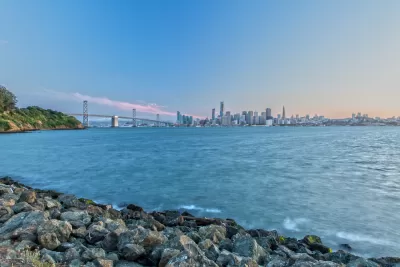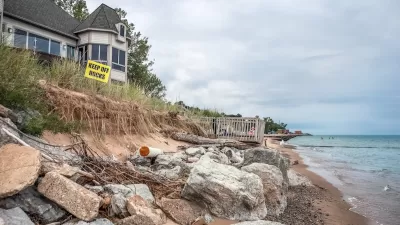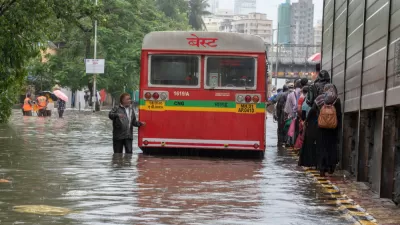In Manila and the San Francisco Bay Area, the severe impacts of rising sea levels are indisputable. But the only similarities are that both places face very uncertain futures.

In a multimedia piece, reporter Somini Sengupta and photographer Chang W. Lee look at the threats, challenges, and responses to climate change in two very different places: Manila and the San Francisco Bay Area.
"In both places, it turns out, how you face the rising sea depends mostly on the accident of your birth: Whether you were born rich or poor, in a wealthy country or a struggling one, whether you have insurance or not, whether your property is worth millions or is little more than a tin roof," says Sengupta.
Climate change is affecting Manila’s most vulnerable residents especially hard, the result of decades of poor land use planning throughout the metropolitan area. "Storms repeatedly sweep away spindly-legged bamboo and tin houses on the water. People flee for a while, only to come back because they have nowhere better to go," writes Sengupta.
In the Bay Area, addressing rising sea levels is complicated by politics and high property values, Sengupta points out. "Unlike Manila, Bay Area municipalities are wealthy. And many of them are already paying handsomely to fortify high-value coastal infrastructure at risk."
The situations in Manila and the Bay Area highlight the difficult questions that remain about the best responses to climate change in coastal areas, says Sengupta. "They could adapt to the rising tide, which could mean moving people out of harm’s way. Or, they could try to force the water to adapt to their needs by raising their defenses."
FULL STORY: A Crisis Right Now: San Francisco and Manila Face Rising Seas

Alabama: Trump Terminates Settlements for Black Communities Harmed By Raw Sewage
Trump deemed the landmark civil rights agreement “illegal DEI and environmental justice policy.”

Study: Maui’s Plan to Convert Vacation Rentals to Long-Term Housing Could Cause Nearly $1 Billion Economic Loss
The plan would reduce visitor accommodation by 25% resulting in 1,900 jobs lost.

Planetizen Federal Action Tracker
A weekly monitor of how Trump’s orders and actions are impacting planners and planning in America.

Waymo Gets Permission to Map SF’s Market Street
If allowed to operate on the traffic-restricted street, Waymo’s autonomous taxis would have a leg up over ride-hailing competitors — and counter the city’s efforts to grow bike and pedestrian on the thoroughfare.

Parklet Symposium Highlights the Success of Shared Spaces
Parklets got a boost during the Covid-19 pandemic, when the concept was translated to outdoor dining programs that offered restaurants a lifeline during the shutdown.

Federal Homelessness Agency Places Entire Staff on Leave
The U.S. Interagency Council on Homelessness is the only federal agency dedicated to preventing and ending homelessness.
Urban Design for Planners 1: Software Tools
This six-course series explores essential urban design concepts using open source software and equips planners with the tools they need to participate fully in the urban design process.
Planning for Universal Design
Learn the tools for implementing Universal Design in planning regulations.
Caltrans
Smith Gee Studio
Institute for Housing and Urban Development Studies (IHS)
City of Grandview
Harvard GSD Executive Education
Toledo-Lucas County Plan Commissions
Salt Lake City
NYU Wagner Graduate School of Public Service





























